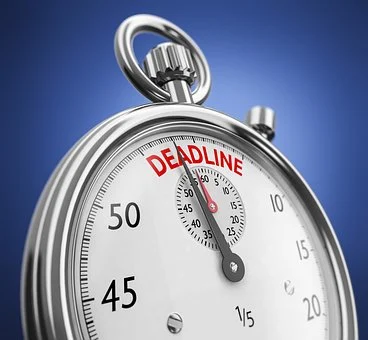Blog
Jun 23, 2018
Experienced, multi-functional proposal managers
Construct winning narrative
Make your bid look its best
Leverage our expertise to make your proposals stronge
Let BZ be your go-to proposal resource
Win a seat on critical contracts
Hight quality, rapid response assistance
Blog
Jun 23, 2018
by Kevin A. Switaj


The company has been targeting an opportunity for a year. It has gone through all the necessary step reviews, has had dedicated capture resources, several client meetings, and the team has even developed win themes and solutions. The solicitation drops. The capture lead then poses the question: ‘who is our proposal manager?’
 This scenario happens all too often, especially in Government contracting. It is rooted in the idea of opportunity stages that are clearly time-blocked and led by a specific person at each stage. When I think of this mindset, I am reminded of women’s basketball up to the early 1970s. At that time, women (unlike men) played with six players – three forwards and three defenders – who were unable to cross the center line. Everyone had their own, specified roles and were unable to work across the boundaries.
This scenario happens all too often, especially in Government contracting. It is rooted in the idea of opportunity stages that are clearly time-blocked and led by a specific person at each stage. When I think of this mindset, I am reminded of women’s basketball up to the early 1970s. At that time, women (unlike men) played with six players – three forwards and three defenders – who were unable to cross the center line. Everyone had their own, specified roles and were unable to work across the boundaries.
Much like women’s basketball, opportunity management has come a long way. Proposal professionals can add value throughout the life cycle. As we become increasingly recognized as a profession and increase our capabilities, proposal managers should be involved in defining and refining solutions, themes, and content well in advance of the solicitation.
Proposal professionals work a lot of bids. For many of us, it’s not just a job but a profession and a passion. We love what we do. It’s what makes the long hours worth it. It’s why we gather at conferences, watch webinars, and, yes, even read blog posts.
That professionalism and experience gives us the knowledge of what works and what doesn’t on a bid, especially when we get to the proposal stage. We know the types of themes and solutions that easily translate to proposals, and what would be difficult to put down on paper. We know what sounds like a ‘me too’ response versus a truly revolutionary or differentiated theme or approach.

Proposal professionals ask the team different types of questions. For example, most proposal people are not technical experts. However, in solutioning sessions that can be a good thing. We ask questions that make the subject matter experts focus their solution on a lowest common denominator instead of simply talking to their peers.
Proposal professionals are great to have involved in these early sessions, if only to keep the conversation on topic and on process. Keeping people focused is a key part of our job. By leveraging that capability in win theme and solution development, capture leads can make sure they get the content they need in a timely and organized manner
Finally, having the proposal manager involved during pre-RFP activity maximizes the chances for success. Having the person leading the bid, who knows what works well and translates easily into proposal narrative, can save time and resources later in the opportunity life cycle. We make sure the right information is captured up front, preventing costly reengineering later. In addition, looping in the proposal manager at this stage means they can hit the ground running upon RFP release and do not have to play catch-up.
Many capture leads and senior figures understand the advantages detailed above. To convince the skeptics of the need for early engagement, proposal professionals need to prove they add value at all stages of the life cycle. Start by targeting opportunities without a professional capture lead. Most firms entrust smaller efforts to the line organization. Proposal managers should work with senior leadership and argue the points above to explain how they can add value and improve pWin through early engagement. After having successful smaller engagements under their belt, proposal professionals can easily make the case to be engaged earlier in the process on large, complex bids.
Proposal professionals commit ourselves to our craft. We are experts in what goes into a strong bid. We add value to our organizations throughout the opportunity life cycle. The earlier the proposal team is involved in the process the earlier they can make sure that ideas, strategies, and themes are translatable into winning proposal language.
